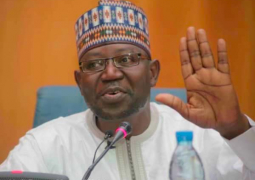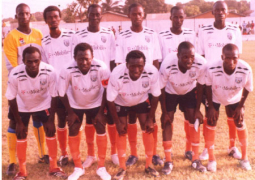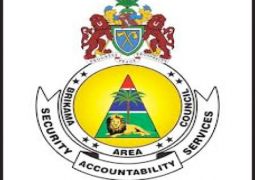Lawyer Ida Drammah last Thursday told the Kanifing Magistrates' Court before Magistrate Tabally that the police were in contempt of court, when they failed to comply with the order of the court to supply the defence with the statements of the prosecution witnesses and that of the accused persons.
Lawyer Ida Drammeh, along with lawyer Lamin Camara, made this statement when she was defending Beatrice Allen, former acting president of the Gambia National Olympic Committee (GNOC) and a member of the International Olympic Committee (IOC), Ousman Abdou Wadda and Muhammed Janneh, GNOC treasurer and accountant respectively.
When the case was called, Superintendent Sainey Joof rose and told the court that the matter was still under investigation, and that the case file was with the Attorney General’s Chambers, which, he said, have supervisory powers.
"As the matter stands, I crave the court's indulgence with respect to an application for an adjournment in the interest of justice," he told the court.
Lawyer Ida Drammeh stood up to say that she had no doubt that the presiding magistrate was now familiar with the excuses of the prosecutors, that the case file was still with the Attorney General's Chambers, and that investigations were ongoing and the prosecution could not proceed with the case.
It was not the function of the police or any prosecuting agency to mess up the lives of accused persons or act in a manner which is contrary to the constitution, which guarantees every person charged with an offence the presumption of innocence.
Counsel cited section 24 of the constitution to support her argument.
Lawyer Ida Drammeh went on to submit that Section 24 of the constitution also gives accused persons the opportunity to defend themselves.
"The prosecution is entitled to bring accused persons before the court and try them within a reasonable time," the defence counsel further argued.
Counsel Drammeh further submitted that the defence had disclosed to the court that the NDEA, NIA and police were all involved in the case and that, when they first came to court, they informed the court that, in October last year, papers were drafted to take the matter to court. "Investigations or harassment started several months before October. It does lie in the mouth of the prosecutor to say at this stage that they could not proceed with the case," Lawyer Drammeh argued.
She further submitted that the police seemed to realize that the Attorney General's Chambers has supervisory powers, but when they came to court with urgency on 21 January, 2011, and charged the accused persons, they did not realize that the Attorney General's Chambers has supervisory powers.
"It is trite law that a person who is in contempt of court cannot be heard, otherwise the court is condoning the contempt," further challenged the defence counsel.
Lawyer Drammeh submitted that it was a month since the matter was brought to court, and the prosecution still could not proceed with the case.
The defence counsel urged the court to dismiss the case, and to order the police not to re-arrest the accused persons.
"The prosecution spoke about justice, and justice is a two-way traffic. It is justice for the accused persons and justice for the state," Lawyer Drammeh submitted.
The defence counsel further argued that, at the last adjourned date 2nd February, 2011, there was an application made by the defence that if the case did not proceed, the matter should be dismissed.
"The police have run out of excuses," said the defence counsel.
Lawyer Drammeh argued that the police should tell the court that they have no case against the accused persons, so that the accused persons would take action against the state for malicious prosecution.
Magistrate Tabally at this juncture reminded the prosecutor that at the last adjourned date he was urged to proceed with the case expeditiously.
He warned the prosecutor that if they fail to proceed with the case, on the next adjournment date, the accused persons would be discharged.
He subsequently adjourned the case until 7th March 2011.
Read Other Articles In Article (Archive)

Arrest of NIA officials was in good faith - Interior ministry
Mar 24, 2017, 11:00 AM



